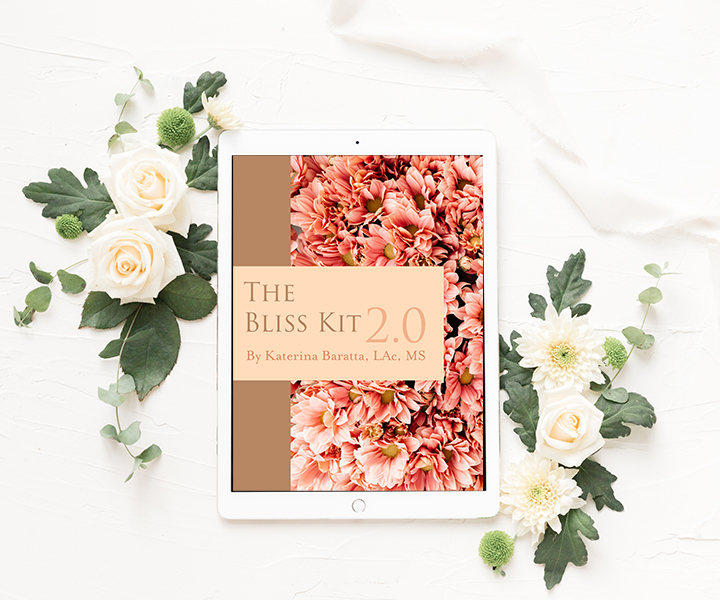3 Ways to Feel Less Stressed and More Grounded When Things Change
Transitions, even the most welcomed ones, can be difficult.
Death and illness are the most obvious examples of how change can affect your well-being.
But even wanted transitions like the birth of a baby, graduation, or moving to an upgraded home can bring up a smorgasbord of emotions that you might not expect.
This is because we humans don’t actually like change.
Sure, you might dream about change—all the things you’d like to have, do, become, and move on from—but when obvious change is underfoot?
It’ll make you feel like you’re trying to walk a straight line in a bouncy-castle.
At the core of your biology, you’re wired to favor stability and predictability.
Because stability and predictability make it more likely that you’ll survive a little longer on the physical plane.
Even if the situations you’re used to are unfavorable or unsafe, your nervous system will steer you stay put in what’s familiar because it gives you the (false but powerful) impression that you can control the outcomes of your life.
You know what happened before, and your subconscious belief is that if things don’t change, you’ll be better able to handle what comes your way.
But transitions bring you face-to-face with the fact that life is anything but stable, predictable, or controllable.
The Ultimate Truth is that change is life’s only constant.
Life literally is change.
Without movement there would be no life.
So trying to figure out how to control life is as useless as trying to harness the waves of the ocean.
A better skill to learn is how to move with life’s tides instead of fighting against them.
This is what ancient traditions like Chinese medicine and Ayurveda (which literally translates to “The Science of Life”) have taught for thousands of years.
These traditions recognize that the mind and body are not separate, but instead operate as aspects of the same system.
They observed that when you support your body, you also support your mental health, and vice versa.
There are 3 mind-body strategies that I’ve found to be especially effective in helping people feel less stressed and more grounded amidst change.
1. Stick to a Routine
Routines create a framework for your life, helping you feel more stable as life shifts.
And this is especially true when it comes to sleep schedules and mealtimes.
Sleep and mealtime routines give you something to rely on.
But this isn’t just esoteric theory we’re talking about here, it’s actually based in biology.
The human body thrives on routine.
And when your body is thriving, you feel more at ease emotionally, too.
Specifically, hormones are triggered at different times of day to send messages throughout your body.
And the more predictable your routine is, the easier it is for your body to anticipate which systems need to be turned up and which need to be turned down in order to function optimally.
(Click here to learn more ways to support your hormones naturally).
When your body knows what to do, you feel taken care of.
But when your body doesn’t know what’s going to happen next, it makes you feel chaotic, restless, and stressed because the wrong systems are being turned on at the wrong times.
So as much as you can, support your body’s natural rhythms.
Go to bed before 10, wake up right around sunrise, and eat at consistent mealtimes.
The more consistent you are, the more your body will know what it needs to do, and the more supported you will feel.
2. Eat Grounding Foods
What you eat is just as important as when you eat.
The food you put into your body literally provides the building blocks and chemical potential for your physiological functioning.
And if you’re putting the wrong kinds of foods in, your body has to struggle to keep up with demands.
When you’re eating, pay attention to the quality of the food you’re putting into your body.
But I’m not just talking about nutrient content, and whether or not your food is fresh, local, organic, etc. (though all of that is important).
When it comes to feeling more grounded, you really want to consider the energetic quality of your food, too.
Grounding foods have an earthy, warming, heavy, and wet quality to them.
Think: Cooked root veggies, warming herbs and spices, soups and stews, and a little extra cooking fat (especially olive oil and clarified butter).
These foods support healthy digestion, which is inextricably linked to mental health.
The link between the brain and the gut is based both in traditional medicine and modern biomedicine.
From a Chinese medicine perspective, the Earth organs are the Spleen and the Stomach, which are said to be in charge of the transformation and transportation of nutrients.
Earth is also associated with home, emotional stability, and groundedness, so when your physical digestion is strong, you’re also better able to digest life.
And with the discovery of the microbiome, biomedical research is starting to catch on to this understanding.
Hundreds of new studies are now being published, demonstrating the link between mental health and what’s happening in the gut.
So one of the most important things you can do to help you feel more grounded is prioritize foods that promote healthy digestion.
3. Practice Presence (aka Mindfulness)
Present awareness is the most essential strategy of them all.
It enables you to feel grounded even when your body is completely out of whack and your world feels like it’s crumbling around you.
Because when you come into the present moment, you find yourself where you are.
And what could be more grounding than being where you are?
It sounds so trite but this is actually incredibly profound.
The moment you start interpreting or judging a situation you are no longer in the present moment, you are in your mind’s fantasy.
It’s imagination that makes you feel ungrounded, not physical reality.
Full contact with the present moment means accepting it as it is, and accepting yourself as you are.
This is where is the ultimate groundedness is found: in simply being.
To be present is to see and accept what is, and it’s in this acceptance that a stability beyond description can be found.
Presence allows you to love life, as you’re living it, without the filter of interpretation.
It’s only when we fight against reality and decide what “should” be that we feel ungrounded, unstable, unhappy.
Byron Katie likes to ask, “Aside from what you’re thinking and believing right now, are you okay?” Or, “Other than what you think and believe about the world, isn’t it flawless?”
Sit with those questions for a while and notice how they shift your perception from what you think should be to what really is present, here and now.
This also means learning to accept and fully feel whatever emotions come up inside of you.
Emotions are just energy, moving through your body.
They’re just feelings, passing through.
They never last.
But until you learn to be present, you fight against uncomfortable emotions, which only increases your discomfort because you’re fighting against what is.
Through presence practice, you can come to appreciate even the most uncomfortable emotions and experiences.
The key is to let go of judgement or interpretation, and shift your focus into the sensations that are present in your body.
Allow yourself to just be present with what is, even if you’re feeling emotions that are uncomfortable or you imagine that you “shouldn’t” be feeling them.
Let yourself be, as you are, right now, and you’ll discover a sense of home and stability that cannot be shaken.
Want to dive deeper?
Click here to download the (free) Bliss Kit and learn more strategies to help you transform stress and anxiety into more ease, joy, and inner peace.
I can’t wait to see where it takes you!





